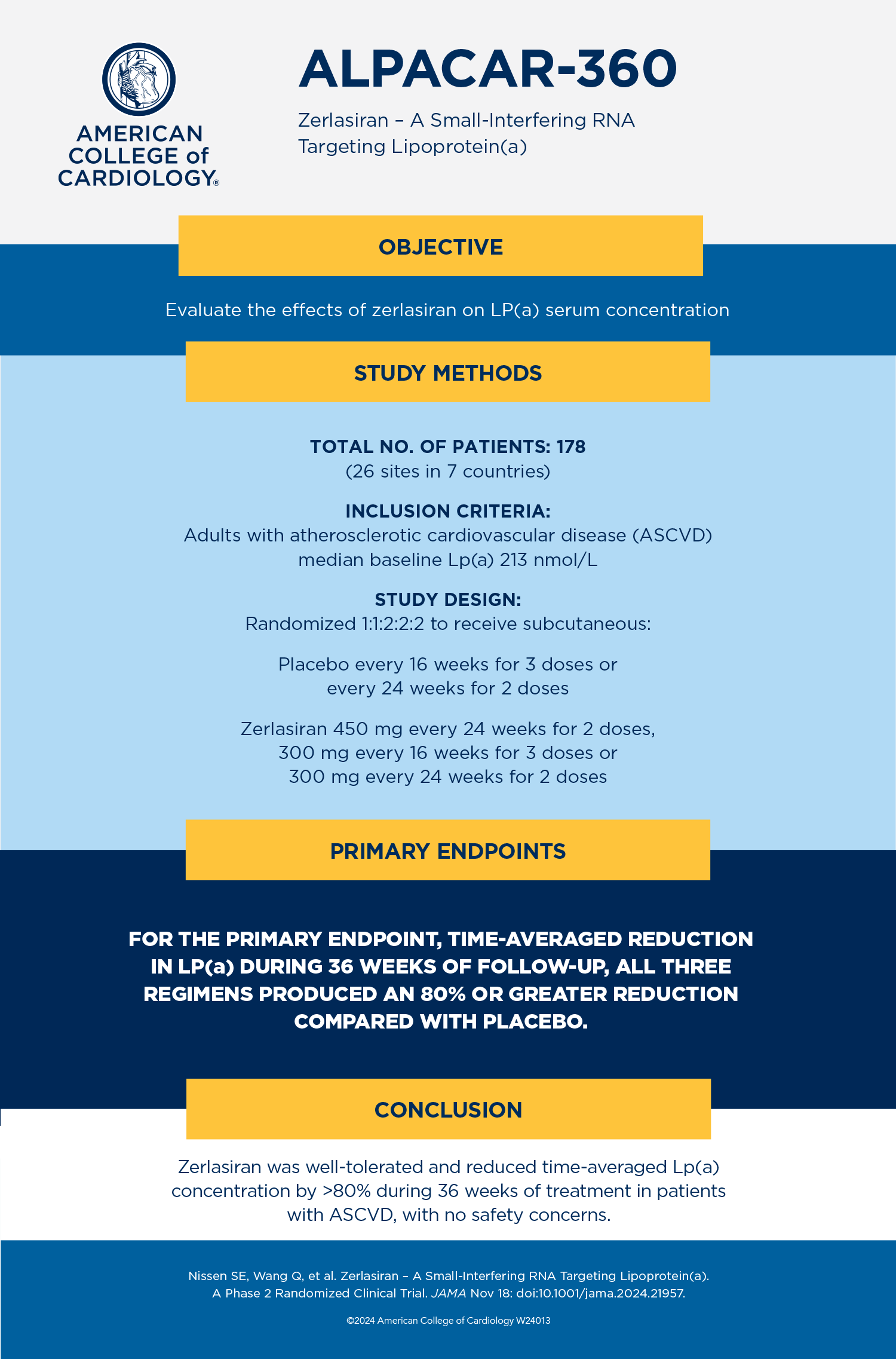ALPACAR: Zerlasiran vs. Placebo in Reducing Lp(a) Concentration in Patients With ASCVD
Zerlasiran, a short-interfering RNA, was well-tolerated and reduced time-averaged lipoprotein(a) [Lp(a)] concentration by more than 80% during 36 weeks of treatment in patients with atherosclerotic cardiovascular disease (ASCVD), based on findings from the ALPACAR study presented at AHA 2024 and published in JAMA.
The phase 2 trial enrolled 178 patients with ASCVD and Lp(a) concentrations greater than or equal to 125 nmol/L from sites in Europe and South Africa. Participants were randomized into one of the following five groups to receive: 1) placebo every 16 weeks for 3 doses (n=23); 2) placebo every 24 weeks for 2 doses (n=24); 3) zerlasiran 450 mg every 24 weeks for 2 doses (n=45), 4) zerlasiran 300 mg every 16 weeks for 3 doses (n=42); or 5) zerlasiran 300 mg every 24 weeks for 2 doses (n=44). Doses were delivered subcutaneously.
Results found the least-squares mean placebo-adjusted time-averaged percent change in Lp(a) serum concentrations was −85.6%, −82.8%, and −81.3% for the 450 mg every 24 weeks, 300 mg every 16 weeks, and 300 mg every 24 weeks groups, respectively. The most common adverse events were mild injection site reactions, and no safety concerns emerged with infrequent dosing, according to the researchers. Additionally, persistent reductions in LP(a) were observed 60 weeks following initial administration.
"These findings support further development of zerlasiran in phase 3 clinical trials," said Steven E. Nissen, MD, MACC, in presenting the findings.
Clinical Topics: Dyslipidemia, Advanced Lipid Testing, Lipid Metabolism
Keywords: American Heart Association, AHA Annual Scientific Sessions, AHA24, Atherosclerosis, Lipoprotein(a)

